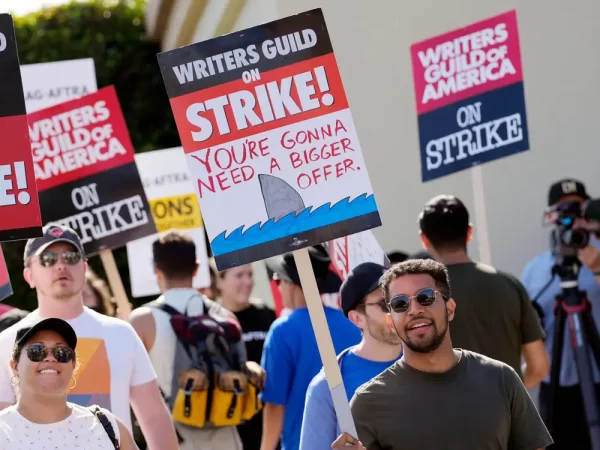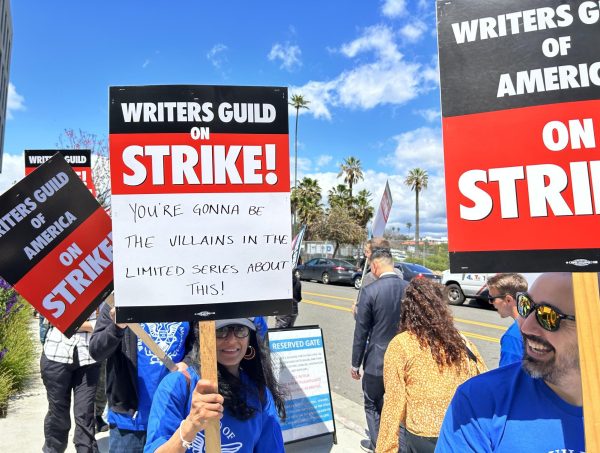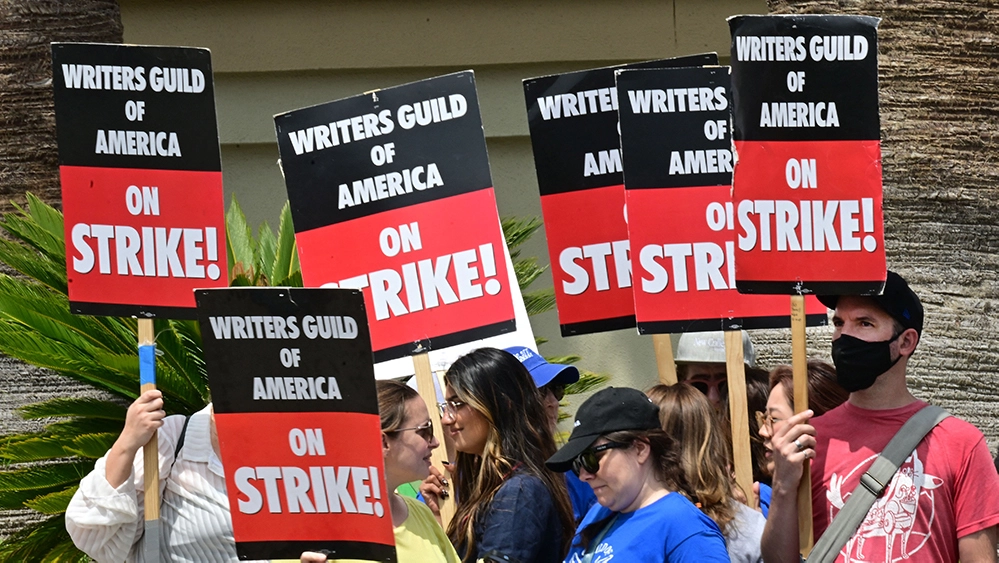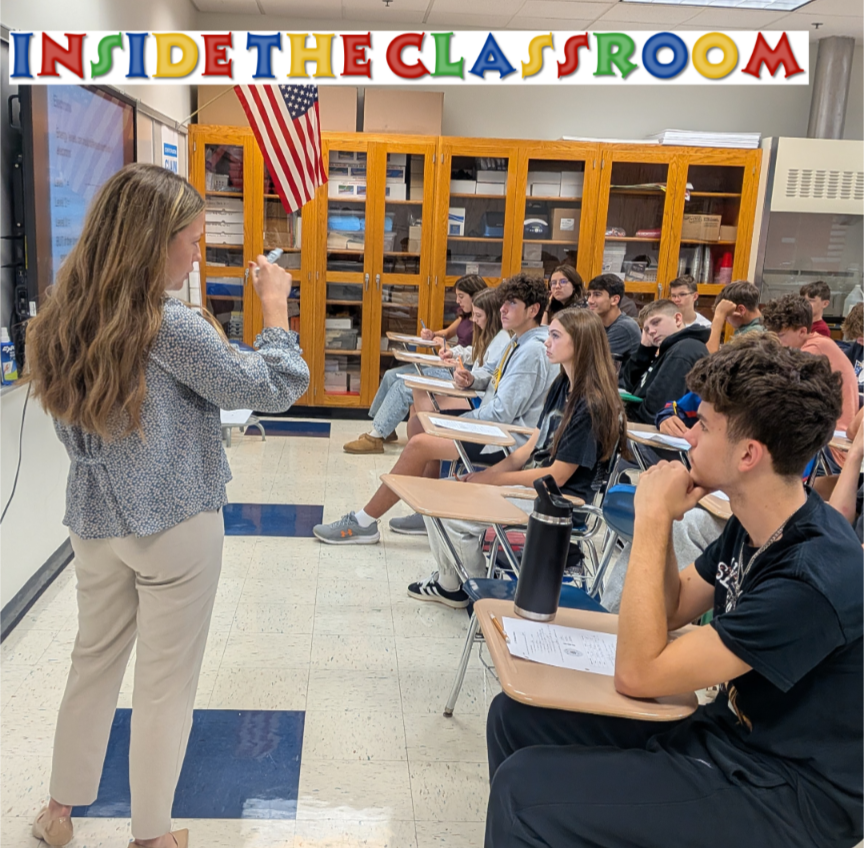The Writers Guild of America’s (WGA) contract with Hollywood studios and executives (represented by the Alliance of Motion Picture and Television Producers or AMPTP) expired May 1st, 2023; the two groups have not been able to come to an agreement since, with America’s screen writers on strike. Only a few months after WGA— on July 14th, 2023–, the Screen Actors Guild – American Federation of Television and Radio Artists (SAG-AFTRA) followed suit for similar contracting issues.
The last WGA strike lasted from November 5th, 2007 to February 12th, 2008, and in even such a small timeframe Hollywood saw major effects: 37,700 lost jobs, a $2.1 billion loss to the California economy, plenty of promising shows losing their audiences, etc.
With the current WGA and SAG-AFTRA strike already longer than the 100 day strike from 2007-2008, the hit to America’s entertainment industry will be brutal, and the Screenwriters and Actors will not be breaking strike anytime soon.

The only way to end the strikes is “to make a fair deal for writers and actors – one that shares the wealth with the people who create it,” said WGA President, Meredith Stiehm.
So what is it that writers want? For a start, it’s better pay.
In the WGA’s negotiation, a large portion of their proposals focus on “residuals”— which are long-term payments for the reuse of a credited writer’s work after its initial release. This means shows that play regularly on cable TV like Seinfeld or Friends must pay a percentage of their profit to the writers credited on the episodes used, no matter how long they’ve aired; these residual payments make sure writers get consistent pay for the work they have done.
For years, writers have been able to depend on their residual checks to get them through lapses in work, as well as fully compensating a writer for their work.
However, residuals do not apply to streaming services.
In the last WGA contract, entertainment executives argued that streaming services were “too new” to properly address using residuals for them. But now, that lack of a consistent paycheck is hurting the writers that work for groups like Netflix, Max, Hulu, and other streaming services. Even writers for popular, award winning shows are going broke.
Alex O’Keefe, one of seven writers on FX’s The Bear has, in an interview with the New Yorker, said that he attended a writing award ceremony for the show with “a negative bank account and dressed in a bowtie purchased with credit.”
The WGA’s proposal addresses this with a request to “Establish a viewership-based residual— in addition to existing fixed residual— to reward programs with greater viewership. Require transparency regarding program views.” This would force streaming services to pay their writers residuals, as well as reward those who write for more successful shows and movies.
This proposal was refused, and no counter offer was made by the AMPTP.
In addition to residuals, the writers also asked for a percentage raise in pay (from 4% to 6%) and potential for multiple rises in residuals, amongst other similar pay-related demands, which the AMPTP counter offered with a continued 4% with potential for only one rise in residuals.
Another major facet to the WGA’s proposal was the disbanding of “mini-rooms”— small groups of writers who work on a show’s script during the “pre-greenlit” phase, but are not permitted to join in actual production. This means that many young writers are only paid for the limited period of time they write, not for the entire process of show-making. It also leaves young writers out of many essential parts of the entertainment industry that build future careers.
“Mini-rooms are abominations, and the refusal of the AMPTP to pay writers to stay with their shows through production — as part of the JOB, for which they need to be paid, not as a tourist — is not only wrong, it is incredibly short sighted,” said Game of Thrones writer and 37 year WGA member, George R.R. Martin. “If the Story Editors of 2023 are not allowed to get any production experience, where do the studios think the Showrunners of 2033 are going to come from?”
With the WGA’s proposal, pre-greenlit staff would be guaranteed a minimum of “10 consecutive weeks of work,” in addition to outlining regulations for post-greenlit rooms, where “Writers on staff must get at least 3 weeks per episode (up to a max. of 52 weeks). Half of the minimum staff must be employed through production. One writer must be employed through post.”
These new regulations would limit producers’ ability to continue using “mini-rooms,” but, again, the WGA’s proposal was refused with no counter offer made.
The last major point that the WGA proposal addressed was Artificial Intelligence (A.I.). Many writers are concerned about the future of A.I. in screenwriting and if studio executives continue on the path they are currently on, losses in jobs and wages for writers seem almost imminent.
For this reason, the WGA proposed that producers “Regulate use of artificial intelligence on MBA-covered projects: AI can’t write or rewrite literary material; can’t be used as source material; and MBA-covered material can’t be used to train AI,” stopping A.I. in its tracks.
The AMPTP counter offered with no regulations on A.I., but “annual meetings to discuss advancements in technology.”
Ultimately, almost none of the WGA’s proposals for the 2023 contract were agreed to, and very few were responded with counter offers; the WGA and AMPTP last met August 4th to further negotiate, but no agreements have been made on the potential new contract, and writers are no closer to ending the strike.

“It’s this medieval siege,” said Jeff Ruthizer, a former labor relations VP for ABC. “They’ve crossed the moat. They’re banging at the gates. The employers are on the top of the gates throwing rocks. They’re hoping that inside the castle, they start eating shoe leather. It’s just absolutely outright war. Whoever has greater resources and willpower and a larder of supplies is going to win.”









